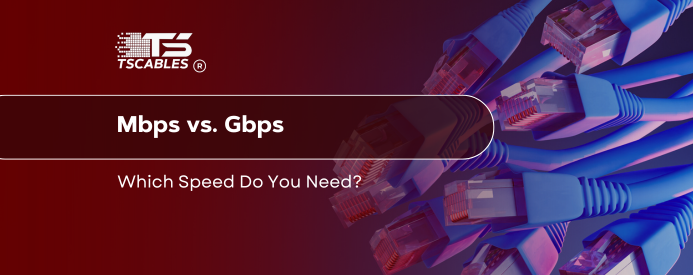Internet speed numbers can get confusing. You see Mbps, you see Gbps, but what do they really mean? Is Mbps or Gbps faster? And what is more, a MB or a GB? These aren't just numbers, they affect how fast your videos load, how smoothly your Zoom call runs, and how quickly your game downloads.
This guide will explain Mbps vs Gbps in plain language. We’ll cover what Mbps is, what Gbps is, and how to choose the right speed for your needs. If you’re tired of buffering, let’s get clear on the difference between megabits and gigabits, without the techy mess.
What is Mbps?
Mbps stands for megabits per second. It tells you how much data moves across your internet connection in one second. One megabit equals 1 million bits. These are not megabytes. That’s a different thing. So if you’re wondering “what is Mbps?”, it’s a speed number, not a size.
Let’s say your speed is 100 Mbps. That means 100 million bits of data are moving every second. This is enough for most streaming, video calls, and online games. If you’re asking, “Is a megabyte or a gigabyte bigger?” the answer is: a gigabyte is bigger. And is MB smaller than GB? Yes, by a long shot.
What is Gbps?
Gbps stands for gigabits per second. One gigabit equals 1,000 megabits. So 1 Gbps is faster than 1 Mbps by a huge margin. Think of it as a 1,000-lane road compared to a one-lane street.
What does Gbps mean? It means ultra-fast internet and is perfect for big families, streaming in 4K, smart homes, and gaming across multiple devices. If you're curious, is a GB more than an MB? Yes. Way more. And Gbps vs Mbps shows how big the gap really is. Gbps internet is usually found in fiber-optic plans. It gives you high speed without delays. But not everyone needs it.
Mbps vs. Gbps: Which Speed Do You Need?
Let’s break down Mbps vs Gbps with real-life examples. Because knowing what’s higher, MB or GB, is one thing. Knowing which one fits your home? That’s what matters.
- For casual browsing, 25 Mbps is fine.
- For streaming in HD, 50–100 Mbps is safe.
- For gaming and Zoom calls, 200–300 Mbps is better.
- For homes with smart tech or many users, 1 Gbps makes sense.
When comparing megabit vs gigabit, remember this: 1 Gbps = 1,000 Mbps. So mbps to gigabit is a jump. Here is a comprehensive table explaining the key difference between Mbps and Gbps.
|
Feature |
Mbps (Megabits per second) |
Gbps (Gigabits per second) |
|
Full Form |
Megabits per second |
Gigabits per second |
|
Unit of Measurement |
Millions of bits transferred per second (1,000,000 bits/second) |
Billions of bits transferred per second (1,000,000,000 bits/second) |
|
Magnitude |
Mega (million, 106) |
Giga (billion, 109) |
|
Relationship |
1 Gbps = 1000 Mbps |
1 Mbps = 0.001 Gbps |
|
Speed/Capacity |
Lower speed and capacity for data transfer. |
Significantly higher speed and capacity for data transfer. |
|
Common Applications |
- Basic internet browsing |
- High-speed internet (fiber optic) |
|
- Streaming standard definition (SD) video |
- Streaming high definition (HD) and ultra-high definition (UHD/4K/8K) video |
|
|
- Downloading smaller files |
- Downloading large files quickly |
|
|
- Some online gaming |
- Online gaming with low latency and high responsiveness |
|
|
- Connecting lower-bandwidth devices (e.g., older routers) |
- Connecting high-bandwidth devices (e.g., modern routers, gaming consoles) |
|
|
- Early Wi-Fi standards (e.g., 802.11g) |
- Newer Wi-Fi standards (e.g., 802.11ac, 802.11ax/Wi-Fi 6) |
|
|
- Some cellular data plans (lower tiers) |
- Advanced cellular data plans (5G) |
|
|
Performance Implication |
Can experience buffering with high-resolution streaming or large downloads. May struggle with multiple high-bandwidth devices simultaneously. |
Offers smoother streaming, faster downloads, and better performance with multiple connected devices. Less prone to bottlenecks. |
|
Cost (Generally) |
Typically associated with lower-cost internet plans and older hardware. |
Often associated with more expensive, high-speed internet plans and newer, higher-performance hardware. |
5 Tips for Improving Internet Speed
You’ve seen the difference between Mbps vs gigabit speeds. But what if your speed still feels slow, even with the right plan? These tips help you get the most out of your current connection. The next five tips cover easy ways to boost your signal, reduce lag, and make sure your speed matches your needs.
Upgrade Your Router
Old routers can’t handle gbps internet speeds. If you’re paying for fast service but using a 5-year-old router, that’s your first problem.
Use Ethernet Instead of Wi-Fi
Wired connections are faster and more stable. A good Cat6 or Cat7 cable makes a big difference. It comes with less lag, leading to better downloads.
Check for Background Apps
Sometimes, slow speed isn’t your internet, it’s your computer. Therefore, you should check for hidden apps or updates using up your connection in the background.
Place Your Router High and Clear
Walls, metal, and even your microwave can block Wi-Fi. Ideally, it is best to put your router in an open area. Also, keep it away from corners or closed cabinets.
Match Your Speed to Your Cable
High-speed internet needs high-quality cables. A weak cable won't carry 1 Gbps to Mbps speeds. Use a proper TS Cables Ethernet line to keep speeds high and consistent.
Final Verdict
In the end, we would say that you need to know your use case for deciding between Mbps vs. Gbps. If you have a big household with streaming 4K and gaming needs, then ho Gbps. Just browsing or checking email is something that Mbps will help you do.
Either way, pick smart, test your speed, and always use quality cables. For the best performance and clean connections, trust TS Cables because your network deserves better than guesswork.
FAQs
Q1: What’s bigger, an MB or a GB?
A GB is bigger than an MB. One gigabyte equals 1,000 megabytes.
Q2: Is Mbps faster than Gbps?
No. Gbps is faster than Mbps. 1 Gbps = 1,000 Mbps.
Q3: What’s a good speed for home internet?
100–300 Mbps is good for most homes. Gbps speeds work better for large families or streamers.
Q4: What does Mbps mean?
Mbps means megabits per second. It shows how fast data moves through your internet connection.
Q5: Is a GB more than an MB?
Yes. A GB is more than an MB. Think of it as more storage and more speed.






